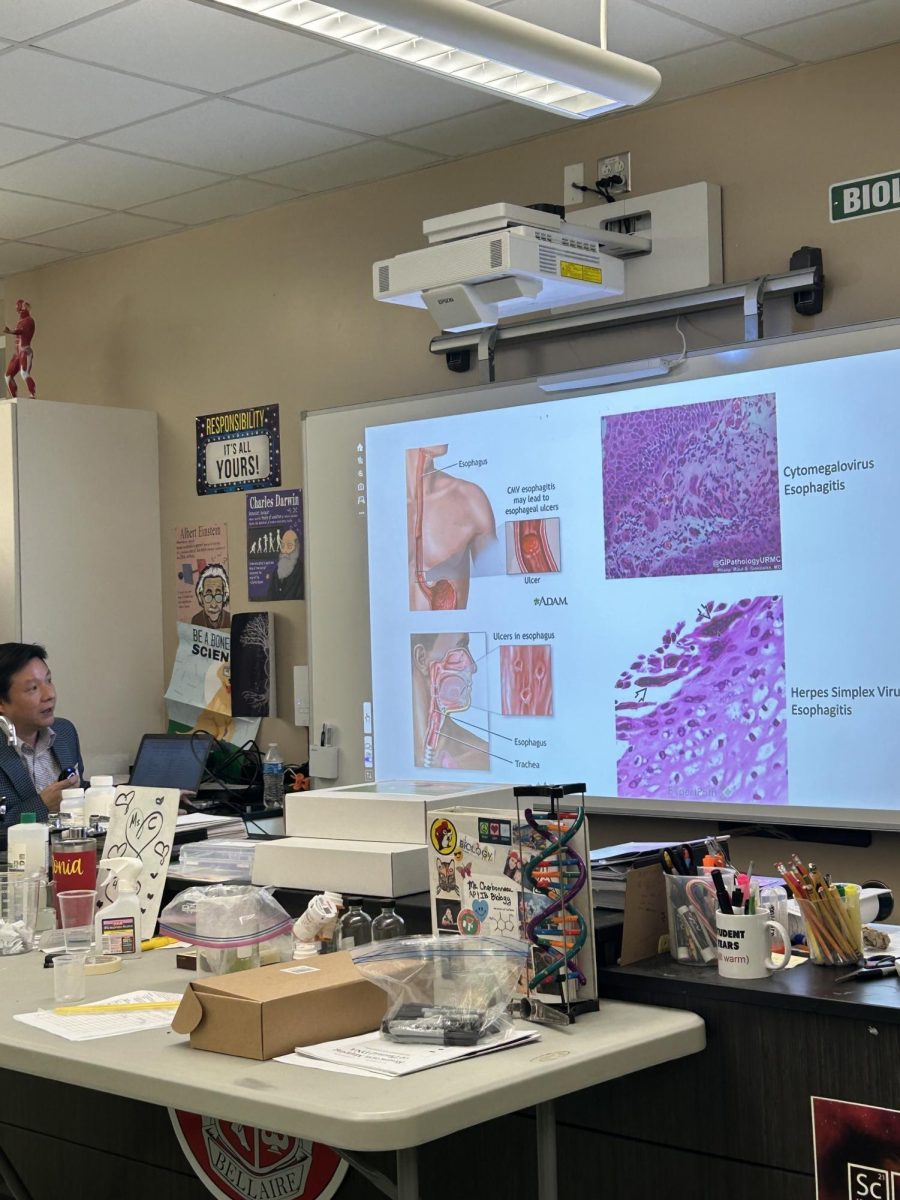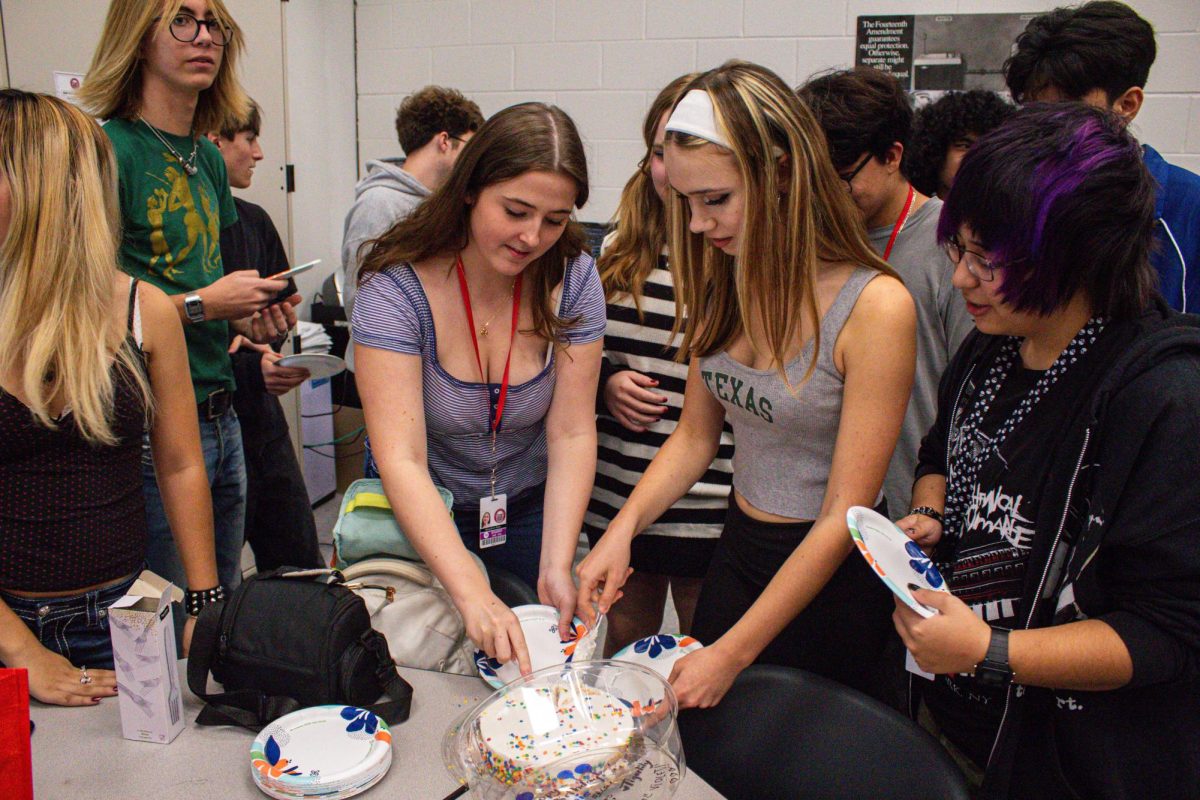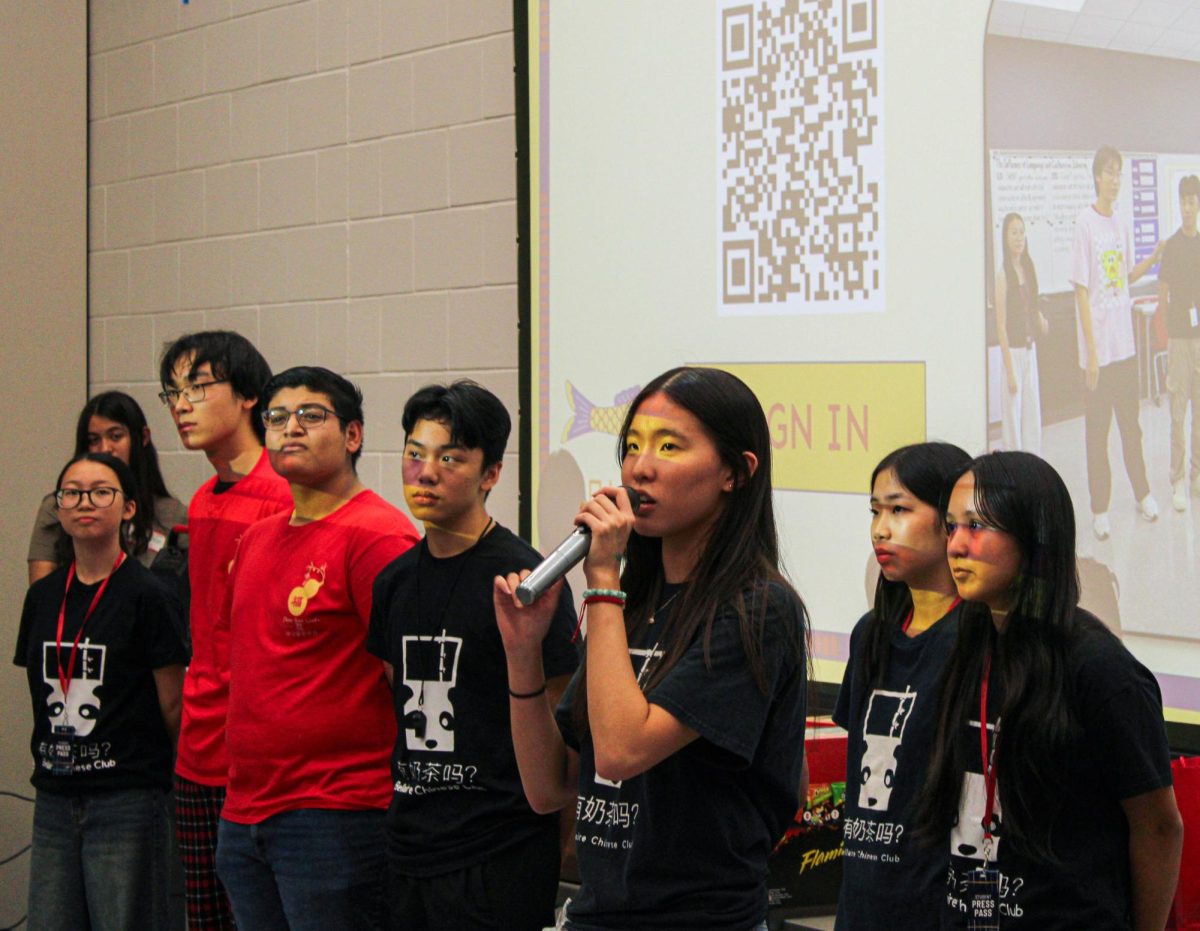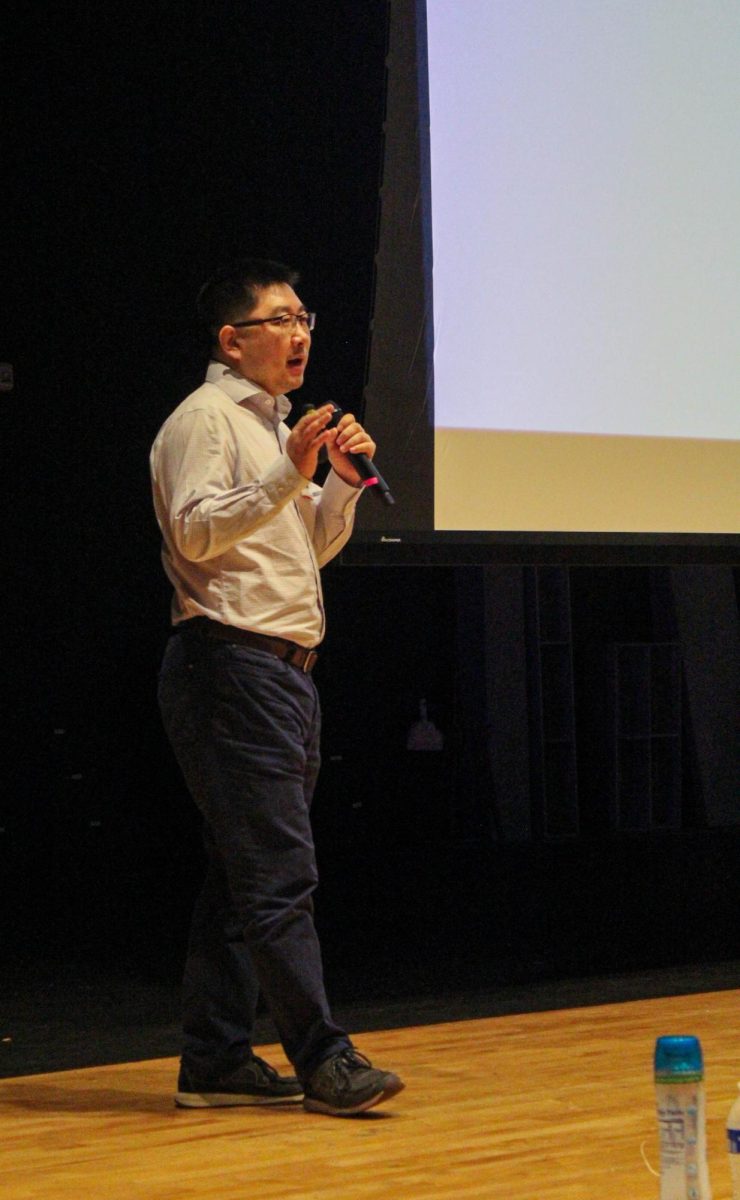“The human is a machine,” pathology specialist Dr. Feng Yin told a room full of Medical Club members on March 20.
During his 30-minute talk, Dr. Yin shared his medical journey and his work in gastrointestinal and liver pathology. As an assistant professor who specializes in pathology at MD Anderson, Dr. Yin’s pathology expertise is in the digestive region such as the gastrointestinal, liver and pancreas.
“Doctors have to be very careful,” Yin said. “If you miss a tumor, that’s a big problem, because then you let the patient go, and after two or three years, the tumor grows and also spreads to other places.”
Dr. Yin presented an in-depth lecture explaining the digestive system. Club members learned about the function and importance of pathology within the digestive system through detailed charts.
“I enjoyed learning about the GI tract and various types of stomach, colon and esophagus diseases and cancers,” sophomore Elizabeth Charbonneau said. “I learned about how these diseases display visual abnormalities in the structures and distribution of cells in tissues.”
The lecture discussed organs like the stomach and diseases like Candida, a fungi-based esophagus infection.
“It was very informative,” Charbonneau said. “I enjoyed seeing pictures taken from tissue samples on slides under the microscope.”
Dr. Yin elaborated on the medical contributions pathology has made toward the treatments of patients and the future importance of pathology.
“There’s a lot of [job] options in pathology,” Yin said. “When a patient has vomiting, diarrhea, they go to see the doctor and they get the biopsy. [MD Anderson] helps with medications and medical information – it’s not only for cancer.”
Dr. Yin specializes in surgical pathology, a form of surgery that directly deals with pathological diseases. Dr. Yin shares how the future of pathology will change in the future, giving students insight as to how jobs may change.
“I’m talking about the future,” Yin said. “With the development of AI, there’s a lot of developments in the pathology field. Now every microscopic slide will be scanned into computer systems so we can look at the screen to make a diagnosis. The computers will assist you to screen the slides to point out the suspicious areas. I think with AI and digital pathology, the future is amazing.”
To learn more about Medical Club, join its Remind @bellaireme.










